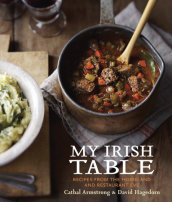.jpg) |
| https://www.flickr.com/people/rykneethling/ |
This morning, my friend Andy posted a recent Facebook status of the band Gungor:
There is a trend in modern society, no more than a trend...a religion, an idolatry that elevates scripture above Jesus. This 'bibliolatry', if you will, is rooted in a modern mindset that values reductionism over mystery. A reading of the Bible over Jesus.
(One clue that your church might be tinged with bibliolatry:in your beliefs section of your website, do you find Jesus first or the Bible?) Bibliolaters claim (read my twitter feed) that Jesus CANT be the foundation of our faith--how do we know about Jesus without the Bible? What they may fail to realize is that Christianity existed for hundreds of years before there even was a Bible as we know it."
This is a topic that I have talked and written about before:
It is comforting to want to believe that the Bible has all the answers for us and is directed to each of us individually. For example, I love when Jeremiah says "For surely I know the plans I have for you, says the LORD, plans for your welfare and not for harm, to give you a future with hope." (Jeremiah 29:11). We all also want to be assured that our lives have had meaning since before we were born, as God says to Jeremiah in the very beginning: "Before I formed you in the womb I knew you, and before you were born I consecrated you" (1:5). But we never finish that verse when we apply it to each human being, because it says "I appointed you a prophet to the nations," and if we take Paul seriously, not all of us are prophets (1 Corinthians 12:29). I want to know that God knows my future, that God has plans for me that are for my good and bring me a hopeful future. And even if that is completely 100% true, those verses aren't directed to me as an individual living in the United States of America in 2014.
The words of Jeremiah are "reflective of and responsive to the historical crisis of the last days of Judah, culminating in the destruction of Jerusalem and the temple in 587 B.C.E. This crisis is the dominant and shaping event of the entire OT." (Brueggemann, Walter. A Commentary on Jeremiah: Exile & Homecoming, page 1).
To think that they are directed to each of us individually does a disservice to God. When we think the Bible is directed to us, we make it about us, and we take the focus off of the Father who inspired it, the Son it points to, and the Spirit who guides us through it.
There is nothing wrong with taking comfort in various verses in the Bible. There is nothing wrong with believing what we read there. But when we stay at a superficial level we are in danger of having a superficial faith that cannot handle any discrepancies that are thrown our way. And, yes, there are discrepancies. I think our fear of being wrong about our faith, whether or not we even realize we are afraid, drives us to want the Bible to be perfect and give us all the answers. Relying on a written text as if it is a car instruction manual is far easier than following Jesus in faith. We look at the Pharisees in the Bible and castigate them for relying on "works" to please God, but then we turn around and rely on our belief about the Bible as what marks one with true faith and belonging.
In Paul's letter to the Galatians, he explains to them that as Gentiles, they do not need to adopt Jewish practices in order to belong to Jesus. Their faith is enough: "yet we know that a person is justified not by the works of the law but through faith in Jesus Christ." (Galatians 2:16)
If we want to apply this to our lives today, as we are so fond of doing with the Bible, we might want to change it a little. If Paul was writing on this topic today, he might say: "yet we know that a person is justified not by what one believes about the Bible, but through faith in Jesus Christ."
Our desire to put the Bible as the focus of our lives instead of our faith in Jesus as the focus of our lives has perhaps had the unintended consequence of enslaving us instead of freeing us--and can cause us to have grave doubts,
as happened to me in the past. Paul writes further in Galatians that "For freedom Christ has set us free. Stand firm, therefore, and do not submit again to a yoke of slavery" (5:1). Then, he wrote that "For in Christ Jesus neither circumcision nor uncircumcision counts for anything; the only thing that counts is faith working through love" (Galatians 5:6) and "the fruit of the Spirit is love, joy, peace, patience, kindness, generosity, faithfulness, gentleness, and self-control." (Galatians 5:22 - 23) and "If we live by the Spirit, let us also be guided by the Spirit." (Galatians 5:26).
It comes down to how we read the Bible. Do we read it as a rote instruction manual, a list what to do and what to not do so our lives are robotically perfect? Or do we read it as the story of how God works in our world, the story of how God loves us, the story of how God redeems us and is making all things new? If we are reading the Bible and the fruits of the Spirit are not present in our lives, then we are reading it wrong--no matter what we believe about it or how good our intentions are.





.jpg)